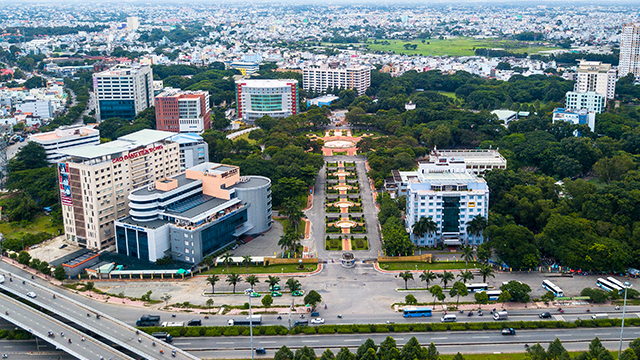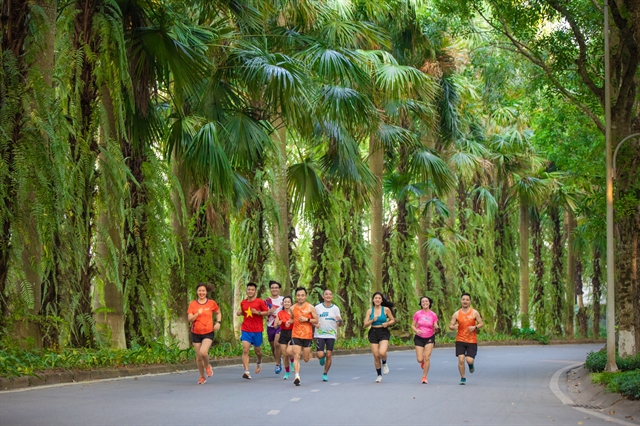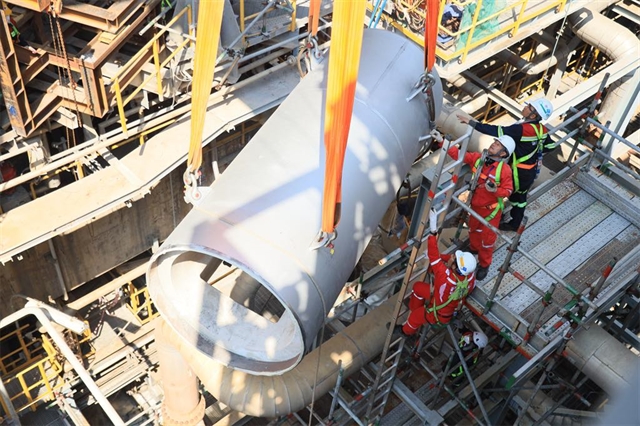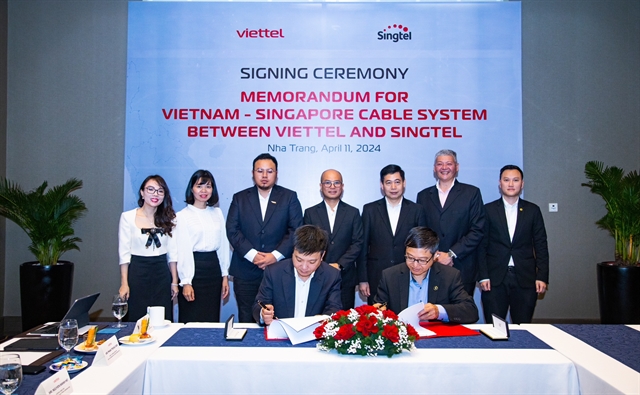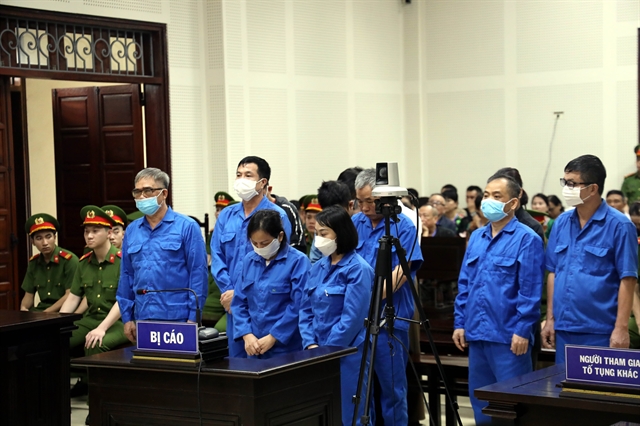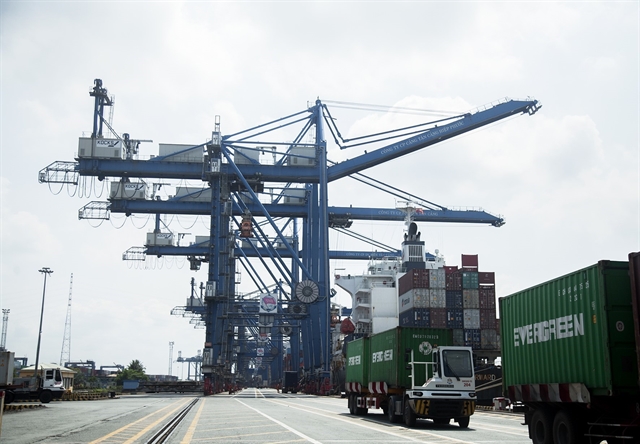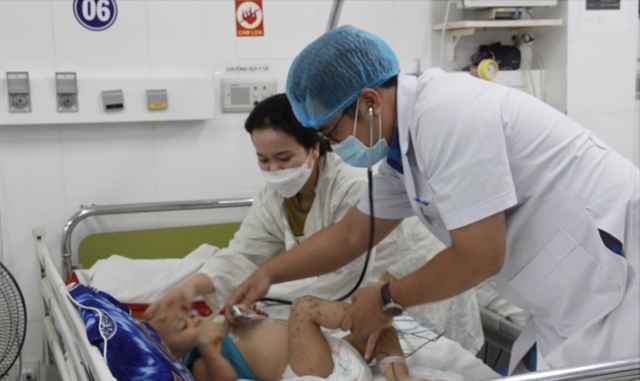 Society
Society
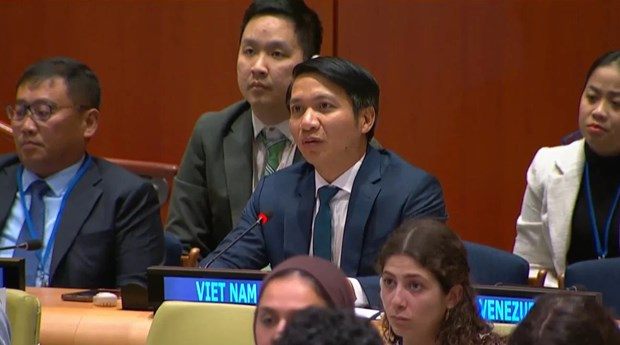
Local and international experts have proposed solutions to help HCM City secure its short- and long-term water supply.
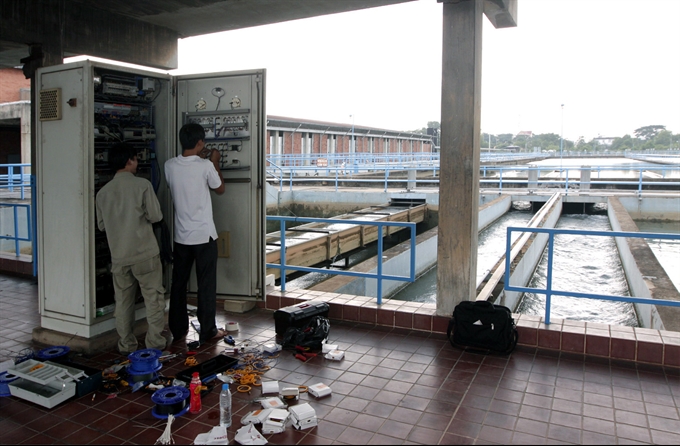 |
| Workers maintain facilities in the Thủ Đức Water Plant in HCM City. Experts propose to build multiple day reservoirs that hold river water to supply water to the city when salinity is high. Building a long pipeline to carry water from Dầu Tiếng Reservoir to water treatment plants is yet another of the expert proposals being considered. — VNA/VNS Photo Ngọc Hà |
HCM CITY – Local and international experts have proposed solutions to help HCM City secure its short- and long-term water supply.
The solutions were discussed on Friday after a four-day brainstorming workshop organised by the Sài Gòn Water Corporation and the Dutch-funded project "Climate Change and Water Supply in the Mekong Delta and HCM City”.
Experts proposed building multiple day reservoirs that hold river water to supply water to the city when the salinity rate is high, and a long pipeline from the Dầu Tiếng Reservoir carrying water to water treatment plants, among other solutions.
They also suggested using the 19-km existing river bed of Láng Thé in HCM City’s Củ Chi District while moving the intake station upstream, and building a salinity weir.
They said the city should take immediate action at Hòa Phú intake station, including adjusting the raw water intake criteria for chloride and mixture with water at the Kênh Đông Water Treatment Plant.
Forecasting salinity levels on the two rivers, combined with an improved flushing policy for the Dầu Tiếng Reservoir, were two other solutions suggested.
In 2012, Sawaco outlined a plan for securing water supply in the city through several measures, including reforestation, construction of sea barrier in estuary of Nhà Bè River, and control of industrial zone development upstream and downstream of intakes.
The company also had plans to ask Trị An and Dầu Tiếng authorities to flush Đồng Nai and Sài Gòn Rivers. The plan to relocate water intakes to the two reservoirs was also mentioned.
Beside the plan to apply new treatment technologies, building raw water storage reservoirs was also considered.
Rik Dierx, resident project manager of the Dutch-funded project "Climate Change and Water Supply in the Mekong Delta and HCM City", said that experts were not privileged to spend the money, but they could give suggestions for short- and long-term solutions that could help solve the problem.
The Dutch expert said that, based on a recent survey of the saline rate on the Sài Gòn River, this level of high salinity had never previously occurred. This has put Sawaco in a difficult situation in finding solutions.
It is possible that Sawaco would have to stop supplying water for a half day or a full day in the future when there is high saline intrusion, if the company does not adapt to the situation.
In the worst case scenario, Rik suggested the company continue supplying water with a saline rate higher than the permitted level, because when the supply stops, dirty water will get into the pipe system, affecting the equipment.
“So far, there is no problem, but we have to be prepared,” he said, adding that he cannot predict how many years from now Sawaco will periodically pause supplying water, especially with the increasing saline-rate situation.
He said there was a threat that some day the Dầu Tiếng Reservoir, which is used to release water to desalinate the Sài Gòn River, would not have enough water for this function.
With the proposed solutions made at the workshop, Sawaco will evaluate and make suggestions to the city government for investment.
The current severe drought and rise in sea levels has caused saline intrusion in the Sài Gòn and Đồng Nai Rivers.
The two rivers supply raw water to businesses and more than 10 million residents.
Since early this year, there has been a shortage of raw water due to the high salinity level, which has been over 250mg per litre, said Trần Cường of the Sài Gòn Water Corporation.
The company’s water treatment plants had to shut down between four and five hours during the period of high saline rate, Cường said, adding that the saline rate in the water of the Sài Gòn River was recorded at nearly 600mg per litre at the Hòa Phú Intake on March 31.
A few weeks before that, the saline rate in the Sài Gòn River was 400mg per litre, but the maximum-permitted salinity rate is 250mg per litre, according to Sawaco’s report. — VNS

